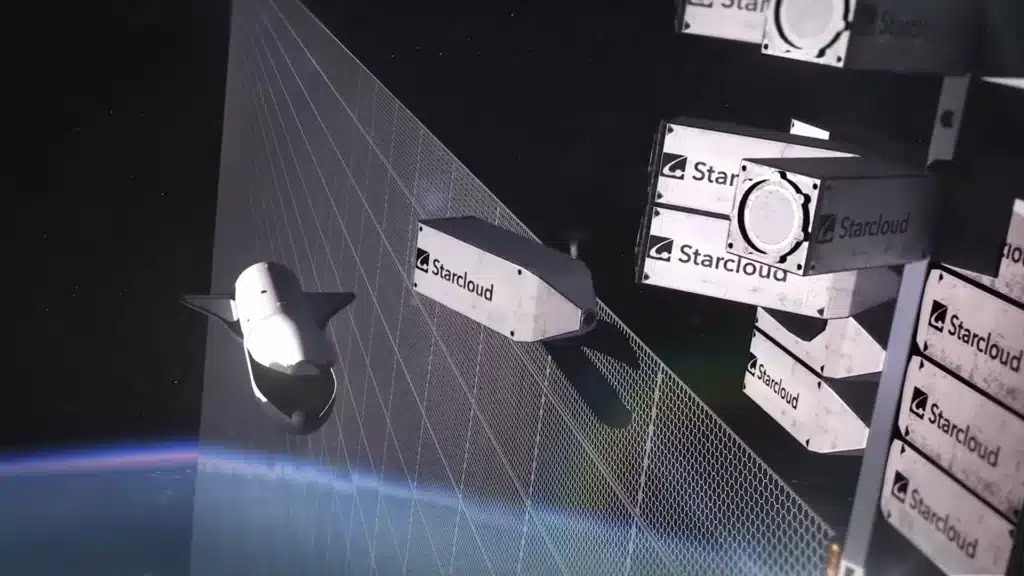
Newsletter Subscribe
Enter your email address below and subscribe to our newsletter

Enter your email address below and subscribe to our newsletter

Starcloud, supported by Nvidia, has sent its first AI-enabled satellite into orbit—ushering in a new era of space-based computing, real-time data processing, and global intelligence capabilities.
A new frontier in space technology has opened as Starcloud, an emerging aerospace startup backed by Nvidia, successfully launched its first AI-equipped satellite into orbit.
This milestone marks a significant leap in the convergence of artificial intelligence, space innovation, and real-time data processing. Unlike traditional satellites that rely on Earth-based servers for computation, Starcloud’s platform brings supercomputing power directly into orbit.
This launch signals a new era of competition in the global space race, one where cloud computing, AI inference, and edge processing become the main battlegrounds.
Starcloud’s mission is built on a simple but powerful insight: the next wave of intelligence will come from space. Traditional satellites capture data, transmit it to Earth, and wait for analysis. The new generation processes data instantly.
With Nvidia’s GPU technology embedded on board, Starcloud’s satellite can:
This eliminates bottlenecks and dramatically improves the responsiveness of space-based applications.
Governments and private companies are accelerating AI + space programs as geopolitical tensions grow and the demand for intelligence becomes more urgent.
AI satellites can track military movements, monitor borders, and support early-warning systems. This places Starcloud in a rapidly growing market where the U.S., China, India, and Europe are competing aggressively.
Real-time detection of fires, floods, and environmental changes positions Starcloud as a key player in global climate resilience efforts.
The ability to pre-process data on orbit enhances bandwidth efficiency and enables more affordable connectivity solutions across Africa, Asia, and Latin America.
Nvidia’s investment is more than financial, it reflects a strategic push into aerospace, edge AI, and defense ecosystems. By embedding its processors in orbit, Nvidia is positioning itself as the backbone of a new computing era.
Analysts see Starcloud as a key validation of Nvidia’s long-term vision to dominate not only Earth-based computing but also extra-terrestrial computing infrastructure.
AI-powered satellites are expected to form a significant part of the $1.8 trillion global space economy projected by 2040.
Starcloud’s business model targets:
The combination of venture backing, GPU acceleration, and autonomous compute positions Starcloud as a next-generation competitor to SpaceX, Planet Labs, and ICEYE.
For Africa (home to some of the world’s fastest-growing telecom and agri-tech sectors) AI satellites could unlock new pathways for:
Countries like Kenya, Botswana, Rwanda, Nigeria, and South Africa are already exploring satellite-enabled digital services. Starcloud’s technology could further reduce barriers and accelerate the adoption of AI-driven solutions.
Starcloud’s launch is not merely a technological showcase; it is a declaration. The next wave of computing power is leaving Earth and moving into orbit. As AI satellites become more autonomous, more powerful, and more integrated with terrestrial networks, global industries will have to rethink how data is collected, secured, and monetized.
For Nvidia, this is a strategic foothold in a new computing frontier. For Starcloud, it is the beginning of a bold mission. For the world, it is the start of an era where space becomes truly intelligent.